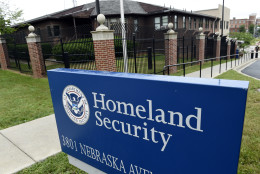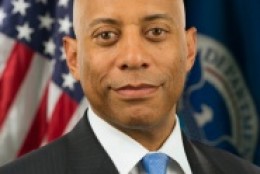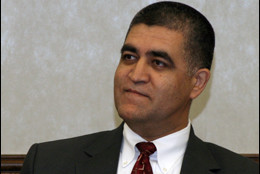Senate Appropriations Committee
-
VA says it wants to significantly expand the health care services it offers through telehealth technologies — voice, video, instantaneous record-sharing — but it's hampered by state laws that require providers to be licensed in the same states as their patients.
May 08, 2017 -
Leadership is changing in six congressional committees with jurisdictions that could affect the way feds do business governmentwide.
December 13, 2016 -
President Barack Obama signed the continuing resolution Thursday, which Congress passed yesterday. The measure keeps the government functioning through Dec. 9.
September 29, 2016 -
The departments of Defense and Veterans Affairs certified to Congress that their electronic health records could finally exchange data in a meaningful way. But lawmakers aren’t satisfied with that assertion.
July 14, 2016 -
The Homeland Security Department once again awarded Raytheon a massive cyber contract eight months after a protest required the agency to pull back its initial award. The DOMino program will supports DHS’ EINSTEIN and other cyber programs as House lawmakers plan to debate the agency’s fiscal 2017 budget.
June 08, 2016 -
New reports by the agency’s inspector general and a private company, called Security Scorecard, both highlight the space agency’s struggles around management and to control malware on their network.
April 25, 2016 -
Leaders of R&D components of DHS detailed technological projects and innovation processes at a Senate Homeland Security Subcommittee budgetary hearing.
April 08, 2016 -
The Government Accountability Office and the Congressional Budget Office defended their increased budget requests to Congress, emphasizing the amount of returns on the investment each agency brings back to the government.
March 09, 2016 -
The Senate Appropriations Committee rejected an amendment that would give the Office of Personnel Management an extra $37 million to make IT upgrades sooner rather than later. Senate Appropriations Committee Vice Chairwoman Barbara Mikulski (D-Md.) offered the amendment. She said OPM needs to fix its IT infrastructure immediately and described the amendment as "emergency funding". Zal Azmi is president and chief operating officer for IMTAS Technologies and former chief information officer at the Federal Bureau of Investigation. He tells In Depth with Francis Rose that agencies need to rethink cybersecurity entirely.
July 27, 2015 -
UPDATED: A key Senate committee approved an amendment today to give federal employees no less than 10 years of identity and credit-monitoring services and $5 million in liability protection for related damages.
July 22, 2015 -
Katherine Archuleta, the director of the Office of Personnel Management, told Senate Appropriations Committee lawmakers that she is demanding better performance by Winvale and CSID in how the vendors are answering questions from current and retired employees about the data breach. Archuleta also said the breach suffered by KeyPoint Government Solutions in August 2014 gave hackers access to OPM’s network.
June 24, 2015 -
The administration criticized the House appropriations framework that would implement sequestration funding levels for non-Defense agencies, while using Overseas Contingency Operations funds to pay for base Defense spending.
June 02, 2015 -
DHS says it found out about the Heartbleed vulnerability at the same time everyone else did. But unlike most other organizations, it had to wade through layers of legal negotiations before it could help federal agencies fix the cyber vulnerability in their own systems.
May 09, 2014 -
NIST, charged with developing the nation's first-ever cybersecurity baseline for critical infrastructure, says its job is to provide technical assistance to companies, but industry itself must lead the way. Gen. Keith Alexander said NSA will review the use of contractors.
June 13, 2013 -
Funding reductions in 2013 appropriations act are sufficient to protect military construction accounts from further sequestration cuts, but funds used for upkeep on existing buildings are severely impacted.
May 13, 2013











